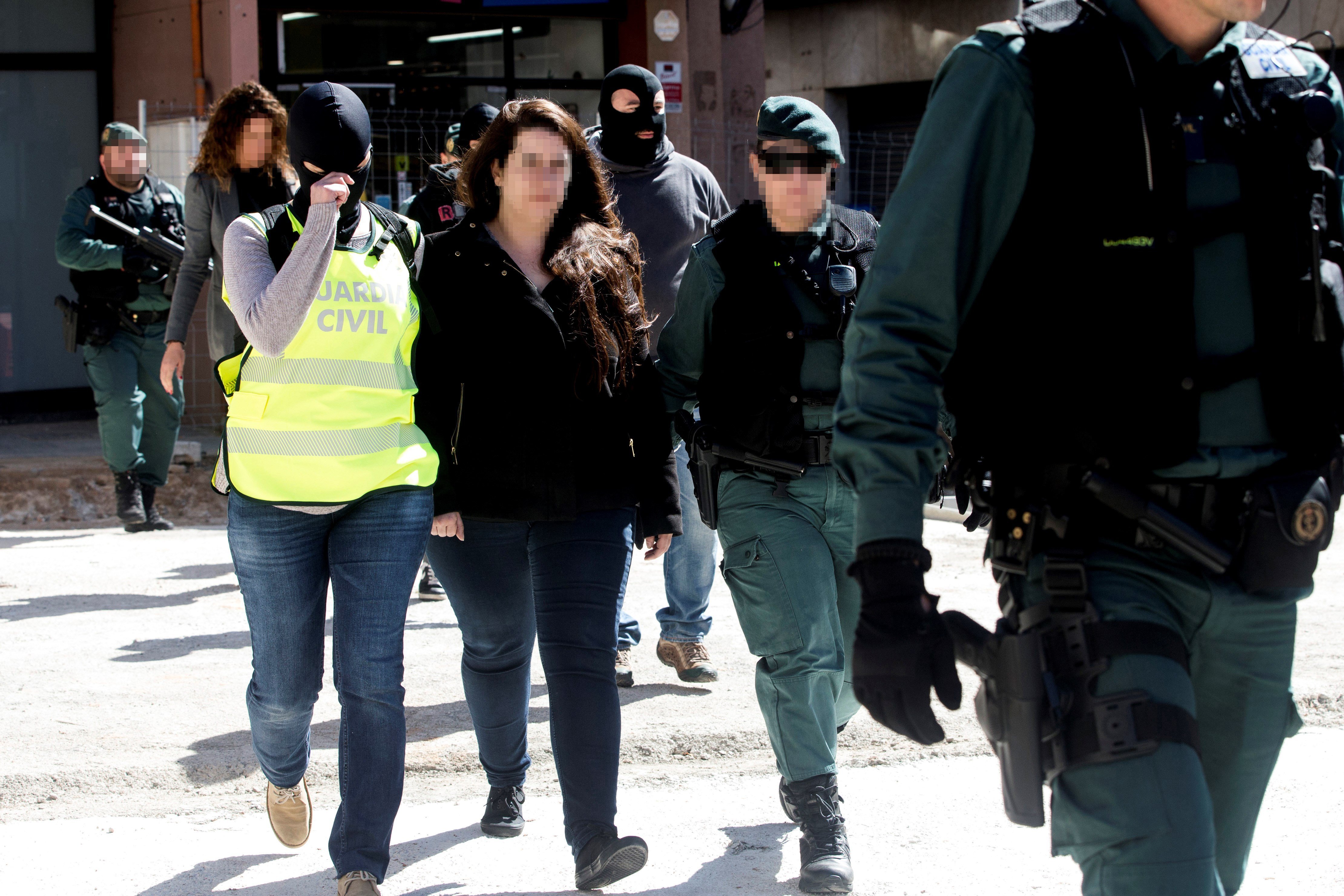National Audience judge Diego de Egea has this Thursday released Tamara C., a member of the Catalan Committees for Defence of the Republic (CDR). She will be investigated for the charge of public disorder, but not terrorism, sedition or rebellion, as public prosecutors had asked, according to legal sources. As such, she could fact an eventual sentence of six months to three years in prison. Today she testified for over half an hour in court, starting late at 1:30pm having been scheduled for 10am and after two nights in a cell.
The judge ordered the following bail conditions: she is banned from leaving Viladecans, just south of Barcelona, except for travelling to and from work if her job is outside of the town; she has to appear at court every Monday; she is banned from leaving Spain without authorisation and has had her passport withdrawn. The other details of the ruling are currently unknown and being kept secret, according to the sources.
Finally, De Egea has ordered an arrest warrant for the other CDR member who didn't appear in court and is also under investigation.
Prosecutors are unhappy with the decision, having asked for pretrial detention after reviewing the evidence obtained by the Civil Guard as they allege in a press release she is "responsible for crimes committed with the aim of rebellion, without prejudice of the subsequent categorisation which could be adopted as the investigation advances".
"The woman under investigation is alleged to have carried out activities managing and coordinating acts of sabotage, forming part of a reduced leadership team which determines the action guidelines and mobilisation slogans of these groups, with acts of rebellion, aimed at normalising disobedience and externalising the confrontation with the state, transferring the Catalan independence process to the streets with violent actions which are being investigated in proceedings at both the Supreme Court and the National Audience, as a clear direct threat to the established constitutional order" they wrote.
They end: "the gravity of the sentences which the events entail, as well as the risk of reoffending, given the actions which the suspect allegedly hoped to coordinate, linked with the aim of avoiding the destruction of evidence due to her already-confirmed attitude, determine the necessity of the requested cautionary measure".

